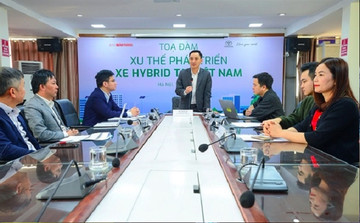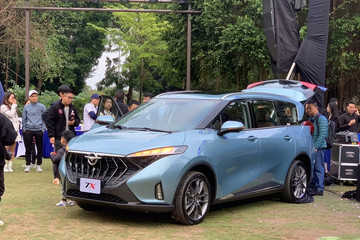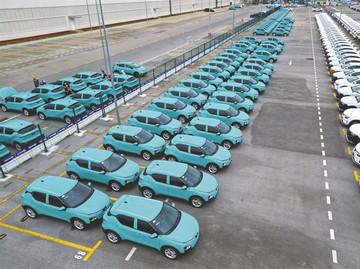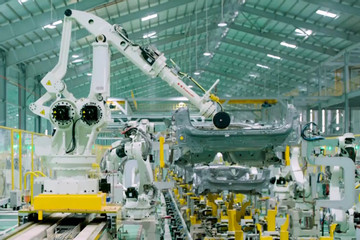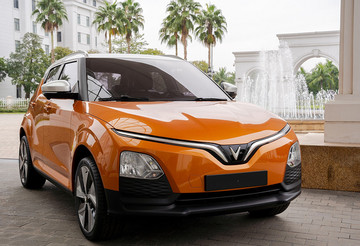- © Copyright of Vietnamnet Global.
- Tel: 024 3772 7988 Fax: (024) 37722734
- Email: [email protected]
vietnam's automobile industry
Update news vietnam's automobile industry
More practical policies for hybrid vehicles proposed
It is necessary to study proposals from experts and businesses to have more practical policies for electric vehicles, particularly hybrid vehicles.
7 top events of Vietnam’s automobile industry in 2023
2023 was a tough year for automobile manufacturers as demand was weak despite considerable price decreases. However, there was good news that marked an important milestone of the industry.
Finance Ministry turns down auto manufacturers’ tax proposals
Proposals by Toyota and Ford about tax incentives have not received support from the Ministry of Finance (MOF) which says there are already many policies to support the domestic automobile assembling and manufacturing.
Finance Ministry rejects carmakers' tax incentive proposals
The Ministry of Finance has declined to support proposals put forth by Toyota and Ford to relax regulations and include certain auto parts in the list of items eligible for a 0% tax rate.
Preferential policies needed to facilitate the transition to EVs in VN
Facilitating the transition to electrified vehicles in VN, State management bodies must put forth preferential policies, development strategies and initiatives to encourage adoption by users, according to experts.
Vietnam imports 100,000 CBU cars in Jan-Oct
Vietnam has imported nearly 100,000 completely built-up (CBU) vehicles worth US$2.3 billion so far this year, down by 21,000 units and US$430 million year-on-year, according to the General Department of Vietnam Customs.
What kind of car will people buy when they are ready for a new one?
Vietnamese, when choosing electric vehicles (EV) as their next car purchase, will not choose based on climate change concerns or preferences offered by the government, a recent survey by Deloitte has found.
Vietnam’s EV market set to experience strong growth
Vietnam’s electrical vehicle (EV) market is poised for strong growth over the next decade, according to the latest report by BMI Research.
Vietnam to take bold move to promote EV industry, green transition
Buyers of electric vehicles (EVs) could receive an incentive totalling 1,000 USD per purchase.
VN’s auto industry needs deeper involvement in global supply: experts
Vietnamese enterprises in the auto industry are not deeply involved in the global supply chain.
Transport Ministry proposes incentives for EVs producers, users
The Ministry of Transport has just submitted its proposal to Deputy Prime Minister Tran Hong Ha on incentives for electrical vehicle (EV) producers and users.
Automaker Thaco's value drops to US$3.8 billion
Thaco, the automobile manufacturer owned by billionaire Tran Ba Duong, has seen fluctuations in valuation with the difference of up to several billion, according to transactions in recent years.
Auto stocks expect good prospects on supportive policies
Despite poor results in the first quarter of 2023, auto stocks are still expected to perform well on supportive policies, including interest rate cuts and a 50% reduction in automobile registration fees.
Domestic automakers increase output in anticipation of 50% registration tax cut
While car imports have slowed down, domestically assembled output has increased sharply. Manufacturers are preparing for the year-end sale season, when domestically made cars will enjoy a 50 percent vehicle registration tax cut.
VN has one more EV startup, teams up with German manufacturer
The newest electric vehicle manufacturer in Vietnam, with technology transferred from Germany, will set up a factory in Thai Binh that will make small-size city vehicles.
Thaco Auto valued at $5 billion, president to sell 10% of shares
Thaco Group owned by billionaire Tran Ba Duong is planning to sell 10 percent of shares in Thaco Auto, one of its subsidiaries, in 2023. The automobile manufacturer is expected to be valued at $5 billion.
Car manufacturers get tax extension
The Government just issued Decree No. 36 extending the time limit for paying excise tax on domestically manufactured or assembled cars.
Cut on automobile registration fees to facilitate auto industry
The Ministry of Industry and Trade supporting the reduction of automobile registration fees is considered a positive effect to the auto industry in the context of the automobile market facing many difficulties.
Is a small-size BYD EV a threat to VinFast’s VF 5?
On the first day of the Shanghai Exhibition, BYD’s small-size electric vehicle (EV) sold out which led many people to believe that the model would have an advantage over the Vietnam-made VinFast VF 5.
Ministry supports 50 percent cut on auto registration fees
In the first three months this year, Vietnam Automobile Manufacturers Association (VAMA) members sold a total of nearly 77,090 units, down 31 per cent compared to the same period last year.
